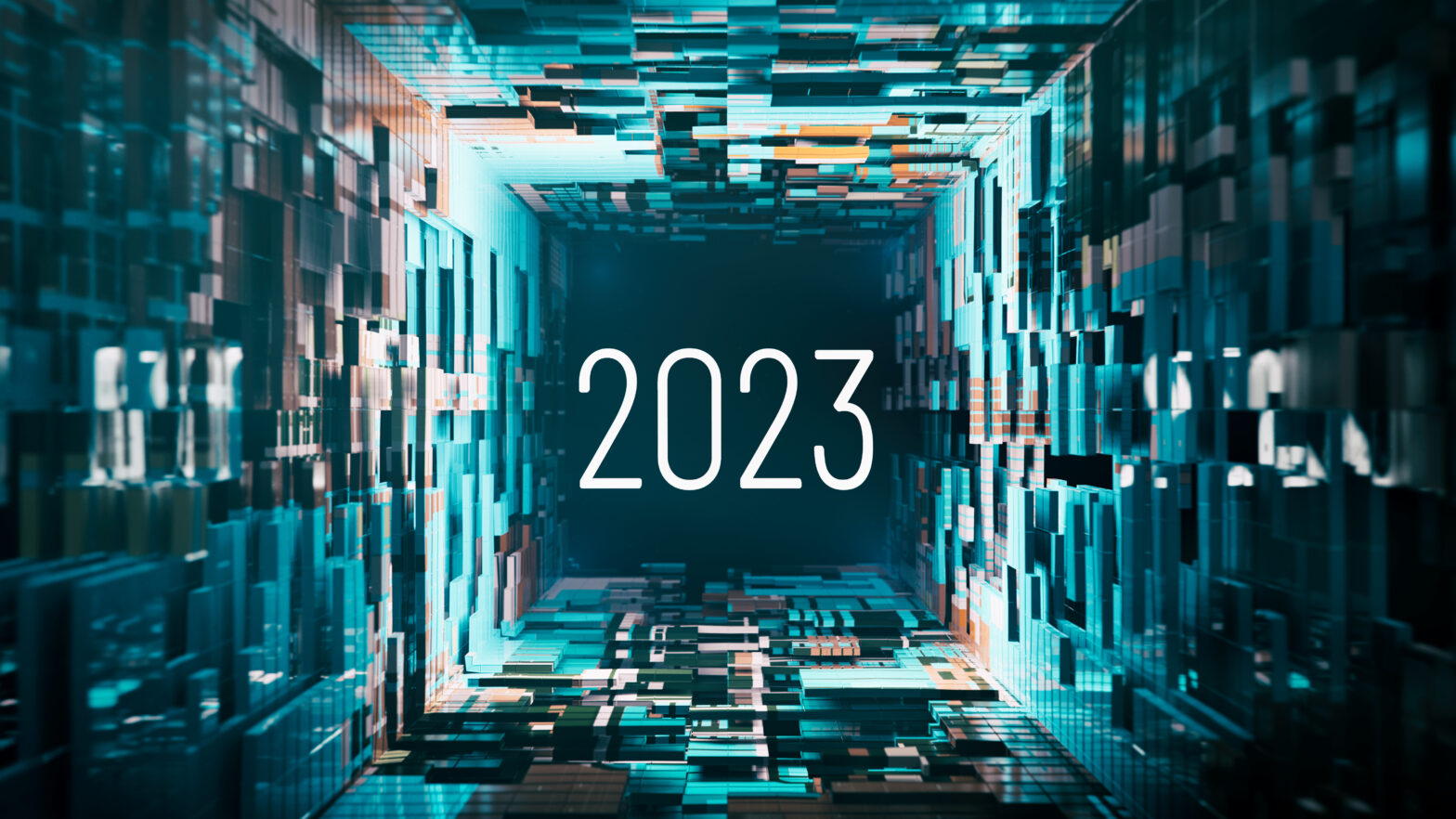2023 could be the year that artificial intelligence moves from the fringes into the mainstream, as AI becomes widely adopted by healthcare, travel and banking. Five experts give their predictions
Worldwide spending on artificial intelligence will hit half a billion dollars this year, according to IDC. Five artificial intelligence experts give Information Age their predictions as to how adoption of AI will accelerate in 2023.
More AI to be used in healthcare and travel
Expect to see AI playing a bigger role in frontline healthcars in 2023, says Adonis Celestine, director of automation at Applause. This will be particularly true in the UK and Europe where there is a shortage of doctors and general practitioners. Chatbots were used to diagnose symptoms during Covid, says Celestine, and in the future we’ll see more instances of AI filtering patients through to the correct medical professionals, once the initial diagnosis has been identified.
Travel is another area where Celestine believes we will see more adoption in the form of AI assistants. These automated assistants will help to create a smoother travel experience: they will manage the entire process from arriving at the airport to boarding a flight, to booking a taxi upon arrival at your destination and checking you into your hotel. They will even provide you with information on where to visit and where to eat during your stay, he believes.
AI to be much more broadly adopted
We are at the tipping point where AI is just not an add-on in discrete areas such as virtual assistants or recommendation algorigthms but will be something which underpins how business is done more broadly, says Carolyn Prior, UKI practice leader applications, data and AI at Kyndryl.
AI-powered automation will free up thousands of people to retrain for higher-value roles and deliver hundreds of millions in cost savings, Prior believes.
This widespread adoption across businesses comes at a time when both money and employee talent is tight. Businesses will look at the human balance sheet of capacity and workload and realise that employing AI-powered automation to do work faster and smarter will be as existentially necessary as growing the skill base of the workforce, she says.
The upside of this is that, as AI spreads throughout the business community, it will be able to demonstrate not only how it improves the customer experience but that of employees to, as well as help sustainability.
Prior says: “By this time next year, I expect to see a much broader cross-sector understanding of the positive consequences of automation.”
Reduce maritime carbon emissions
The maritime industry – think of all those container ships crossing and recrossing the oceans – is well aware of its responsibilities when it comes to net zero. In fact, eight out of 10 maritime professionals understand the importance digital technology will play in halving carbon emissions by 2050. But there is a lack of detailed knowledge and skills about how exactly the industry is going to get there.
Sarah Barrett, head of product insights for maritime tech company Wärtsilä Voyage, says: “To get the most out of AI and data-driven technologies, maritime will have to bring in talent from adjacent sectors, such as logistics or supply chain. Data, IT and sustainability specialists will be critical to increase the pace of change and deliver against companies’ ambitious net zero strategies.”
Rise in synthetic data
Synthetic data – data artificially generated by a computer simulation – will grow exponentially in 2023, says Steve Harris, CEO of Mindtech. “Big companies that have already adopted synthetic data will continue to expand and invest as they know it is the future,” says Harris.
Harris gives the example of car crash testing in the automotive industry. It would be unfeasible to keep rehearsing the same car crash again and again using crash test dummies. But with synthetic data, you can do just that. The virtual world is not limited in the same way, which has led to heavy adoptoin of synthetic data for AI road safety testing.
Harris says synthetic data is now being used in industries he never expcted in order to improve development, services and innnovation.
Says Harris: We can expect this to continue as synthetic data offers a more cost-effective and efficient avenue to collecting data for more intelligent AI.”
Widespread adoption by banks
Banks will use AI more heavily to give them a competitive advantage to analyse the capital markets and spot opportunities.
“2023 is going to be the year the rubber meets the road for AI in capital markets, says Matthew Hodgson, founder and CEO of Mosaic Smart Data. “Amidst the backdrop of volatility and economic uncertainty across the globe, the most precious resource for a bank is its transaction records – and within this is its guide to where opportunity resides. Extracting the value from these records is no longer a nice to have, it’s a core necessity for competitive advantage.
“Those that take action now will benefit from being the first past the post – they will generate more business and start to generate more data, from which they can extract more insight and continue the cycle of prosperity. As we head into 2023, the race to become data-first and deploy AI effectively is well and truly underway.”
More on artificial intelligence
Why the EU’s Artificial Intelligence Act could harm innovation – The EU’s proposed Artificial Intelligence Act plans to restrict open-source AI. But that will come at a cost for advancement and innovation, argues Nitish Mutha of Genie AI
How organisations can use AI to drive sustainability efforts – Peter Weckesser, chief digital officer at Schneider Electric, discusses how AI can help businesses drive sustainability efforts
Use cases for AI and ML in cyber security – As cyber attacks get more diverse in nature and targets, it’s essential that cyber security staff have the right visibility to determine how to solve vulnerabilities accordingly, and AI can help to come up with problems that its human colleagues can’t alone







